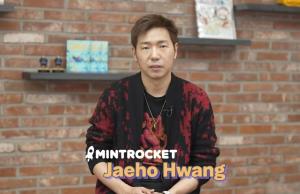Recently, hot issues in the automobile industry are related to IT technology. It is very different from the past, which was concerned with engine output or the efficiency of gear transmission. In this flow, crises and opportunities come together.
Electric vehicle consumers have a relatively weak preference for German and Japanese cars, which have depended on brand values. This includes South Korea's Hyundai and Kia, which have leapt into the world's fifth-largest automakers. And Tesla is currently the leader in the electric vehicle industry. Consumers do not particularly appreciate the brand value of Mercedes-Benz or Ferrari in electric vehicles.
This could be an opportunity for Hyundai and Kia. If it shows an electric vehicle with better battery output and excellent self-driving system, it means that anyone can challenge the global Electric vehicle industry. Tesla is a good example of that. The Apple Car, which has been a hot topic recently, shows this atmosphere well.
In order to take the lead in the automobile operating system (OS), the Hyundai Motor Group has completely broken up with Google and is going on its own. Google's Android Automotive OS, which was applied to the infotainment system built into the vehicle, will no longer be used. Hyundai first applied its own OS to some models of Genesis last year. From next year, we plan to expand this to the entire group to eliminate external dependence.
According to media reports, Hyundai Motor Group's own operating system is known as the Linux-based Connected Car Operating System (ccOS). After first introducing its own OS to infotainment such as car audio, Hyundai Motor plans to expand its own OS to the entire vehicle, such as the instrument panel and vehicle control.
Currently, global automakers use different OSs in areas such as infotainment, instrument panel, and vehicle control. Although Volkswagen and Toyota applied their own OS to some vehicles, Hyundai is the first to expand to all models.
Currently, automakers and major IT companies are in a fierce battle for leadership. As seen in the case of Apple Car, IT companies try to subordinate the car, which is hardware, to the software platform. It doesn't matter which factory and which country made it, it's about making the purchase value different depending on which operating system is used. Even if they are made with the same hardware, the value of an Apple iPhone and a Chinese Android phone is different.
On the other hand, automakers are trying to make the operating system and batteries, which are the achievements of IT companies, at the level of parts built into vehicles. The Samsung Galaxy S series uses either Samsung Exynos or Qualcomm Snapdragon depending on the market. Still, consumers trust the brand and product name and buy it. Apple also mixes parts from several companies with the same specifications, but we live by looking at the Apple mark.
Hyundai seems to have the same strategy. It is calculated that Hyundai Motor can push forward as Hyundai Motor's brand even if it uses its own operating system. But is it really that easy? The question is how much capability Hyundai has in the complete IT field. It could even manage to create infotainment that simply controls car audio and provides navigation functions.
The key is self-driving. Future electric vehicles must have self-driving capabilities along with the electronicization of all instrument panels. As it replaces the human role, the fastest and most accurate forward recognition ability and processing ability are required. Even if the car audio stops for a while, you can turn it on again. But what if the instrument panel is fed up? What if there is an error in forward recognition even for a moment? Fatal accidents can happen. However, the auto industry is a complete beginner in this field. This is the domain of traditional IT companies.
There are reasons for the dissatisfaction of automakers. It is argued that while Google has a unilateral policy and collects various data, the implementation of functions is limited. However, it is not easy for automakers to maintain their own operating system. From now on, we have to continue pouring huge research funds and time to keep up with the level of global IT companies.
Why does Samsung Electronics, which tried its own operating system on the Galaxy Watch, join hands with Google again? This is because the results are not excellent for the money invested. The independent operating system that Hyundai is trying can be like that. On the good side, the operating system dominates, but on the bad side, it can become technologically isolated and outdated. It is the light and darkness of its own operating system.
Nevertheless, if you are prepared for all this and start your own operating system, the answer is simple. It must be won through bold investment, continuous technology development, and persistent support. If it doesn't follow, it will fail miserably. In the early days of smartphones, we saw several proprietary operating systems such as WebOS, Windows Phone, Linux, and Bada, but they are nowhere to be found now. If Hyundai's independent operating system succeeds, a new path for Korean automobiles will be opened. I wish the success of Hyundai Motor Company, which made a big decision.
 |
김창훈 기자 changhoon8@gamevu.co.kr
<저작권자 © 게임뷰, 무단 전재 및 재배포 금지>

 넷마블, '나 혼자만 레벨업: 어라이즈' 체험기
넷마블, '나 혼자만 레벨업: 어라이즈' 체험기




![[현장] 김형태 대표 여의도에 강하! 시프트업 ‘스텔라 블레이드’ 행사](/news/thumbnail/202404/32567_86823_5854_v150.jpg)
![[포토] 카카오게임즈 '아키에이지 워', 대만 쇼케이스 성료](/news/thumbnail/202404/32529_86732_3127_v150.jpg)
![[포토] '오버워치 챔피언스 시리즈(OWCS)' 아시아 본선에 나서는 한국팀들](/news/thumbnail/202404/32461_86464_3811_v150.jpg)
![[포토] X-PLANET, 첫 단독 팬미팅 앞둔 ‘후뢰시맨’ 배우 입국 현장](/news/thumbnail/202404/32440_86387_5027_v150.jpg)



